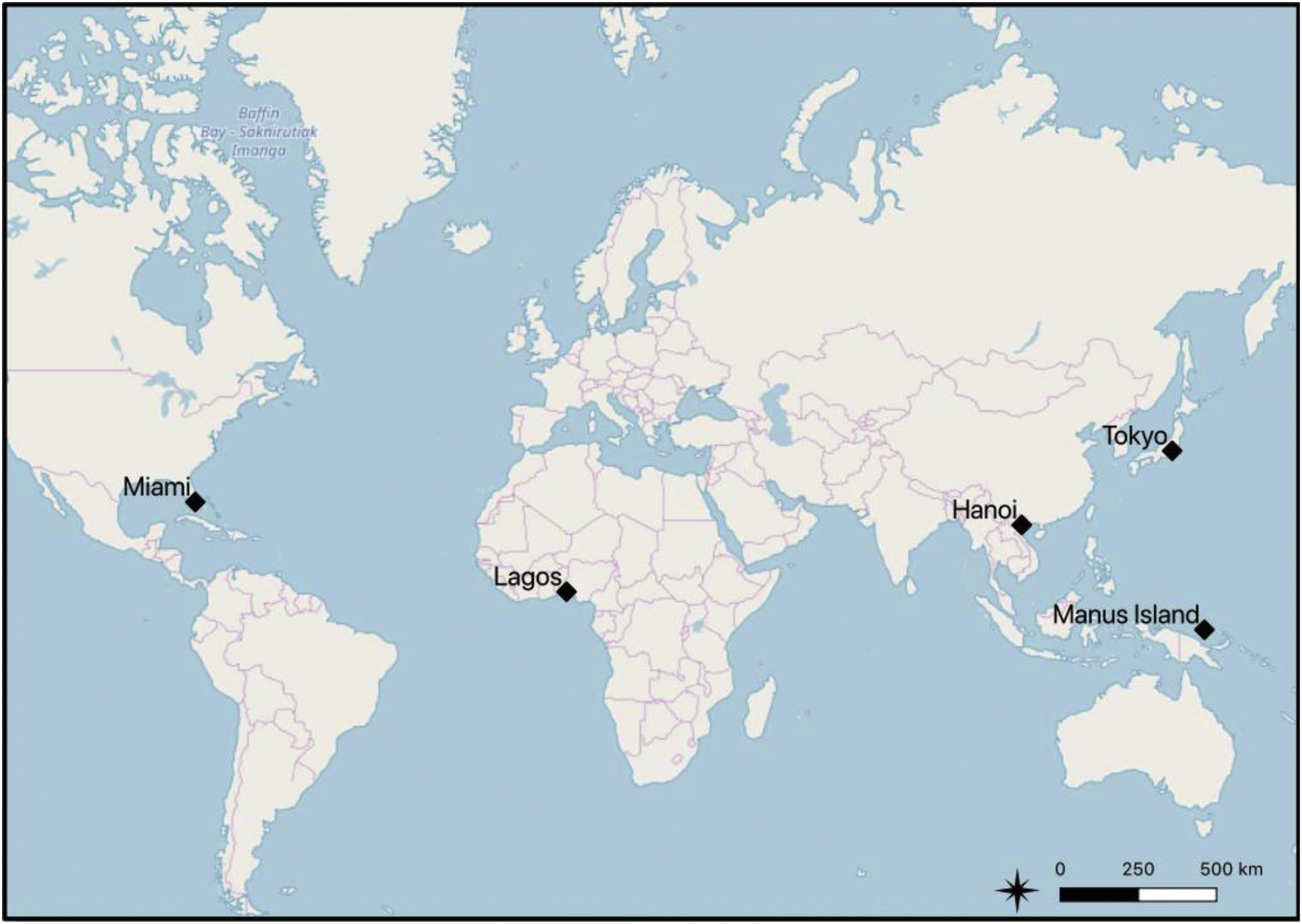Map of the month July/August 2019
July/August 2019

Source: Thomas and Warner (2019) Weaponizing vulnerability to climate change. Global Environmental Change, volume 57 (https://www.sciencedirect.com/science/article/pii/S0959378019301347)
As the world struggles to battle the effects of climate change, not everyone benefits equally from the remedies. In a recent paper titled Weaponizing vulnerability to climate change, Benjamin Warner, an Assistant Professor in the Department of Geography and Environmental Studies, and his colleague Kimberley Thomas, a political ecologist at Temple University, examine the way the fight to remediate climate change is hurting the most vulnerable, the poor. Thomas and Warner looked at five threatened coastal areas around the world: Miami, Florida; Lagos, Nigeria: Hanoi, Vietnam; Tokyo, Japan; and Manus Island, Papua New Guinea. In these places, efforts to mitigate the effects of rising sea level have accentuated preexisting disparities between wealthy and poor. For instance, in Lagos, Nigeria, a sea wall built to protect prized beach property altered coastal hydrology in a way that increased flooding risk in nearby, poor neighborhoods. Thomas and Warner conclude that political-economic elites are implementing policies to protect themselves from climate change impacts, while using predictions of impacts to marginalize people who are the most vulnerable to environmental hazards. For a UNM news article about their research, see the UNM newsroom article: research examines ramifications of climate change on different populations

